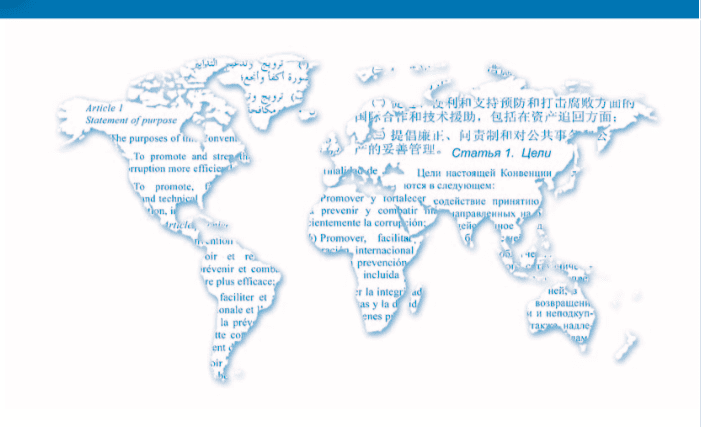
United Nations Convention Against Transnational Organized Crime and the Protocols Thereto
Foreword
With the signing of the United Nations Convention against Transnational Organized Crime in Palermo, Italy, in December 2000, the international community demonstrated the political will to answer a global challenge with a global response. If crime crosses borders, so must law enforcement. If the rule of law is undermined not only in one country, but in many, then those who defend it cannot limit themselves to purely national means. If the enemies of progress and human rights seek to exploit the openness and opportunities of globalization for their purposes, then we must exploit those very same factors to defend human rights and defeat the forces of crime, corruption and trafficking in human beings.
One of the starkest contrasts in our world today is the gulf that exists between the civil and the uncivil. By “civil” I mean civilization: the accumulated centuries of learning that form our foundation for progress. By “civil” I also mean tolerance: the pluralism and respect with which we accept and draw strength from the world’s diverse peoples. And finally, I mean civil society: the citizens’ groups, businesses, unions, professors, journalists, political parties and others who have an essential role to play in the running of any society.
Arrayed against these constructive forces, however, in ever greater numbers and with ever stronger weapons, are the forces of what I call “uncivil society”. They are terrorists, criminals, drug dealers, traffickers in people and others who undo the good works of civil society. They take advantage of the open borders, free markets and technological advances that bring so many benefits to the world’s people. They thrive in countries with weak institutions, and they show no scruple about resorting to intimidation or violence. Their ruthlessness is the very antithesis of all we regard as civil. They are powerful, representing entrenched interests and the clout of a global enterprise worth billions of dollars, but they are not invincible.
The Millennium Declaration adopted by the Heads of State meeting at the United Nations in September 2000 reaffirmed the principles underlying our efforts and should serve to encourage all who struggle for the rule of law. The Declaration states that “men and women have the right to live their lives and raise their children in dignity, free from hunger and from the fear of violence, oppression or injustice”.
At the Millennium Summit, world leaders proclaimed freedom—from fear and from want—as one of the essential values in the twenty-first century. Yet the right to live in dignity, free from fear and want, is still denied to millions of people around the world. It is denied to the child who is working as an indentured labourer in a sweatshop; to the father who must pay a bribe to get medical care for his son or daughter; to the woman who is condemned to a life of forced prostitution.
I believe the trafficking of persons, particularly women and children, for forced and exploitative labour, including for sexual exploitation, is one of the most egregious violations of human rights that the United Nations now confronts. It is widespread and growing. It is rooted in social and economic conditions in the countries from which the victims come, facilitated by practices that discriminate against women and driven by cruel indifference to human suffering on the part of those who exploit the services that the victims are forced to provide. The fate of these most vulnerable people in our world is an affront to human dignity and a challenge to every State, every people and every community. I therefore urge the Member States to ratify not only the United Nations Convention against Transnational Organized Crime, but also the Protocol to Prevent, Suppress and Punish Trafficking in Persons, Especially Women and Children, which can make a real difference in the struggle to eliminate this reprehensible trade in human beings.
Criminal groups have wasted no time in embracing today’s globalized economy and the sophisticated technology that goes with it. But our efforts to combat them have remained up to now very fragmented and our weapons almost obsolete. The Convention gives us a new tool to address the scourge of crime as a global problem. With enhanced international cooperation, we can have a real impact on the ability of international criminals to operate successfully and can help citizens everywhere in their often bitter struggle for safety and dignity in their homes and communities.
The signing of the Convention in Palermo in December 2000 was a watershed event in the reinforcement of our fight against organized crime. I urge all States to ratify the Convention and the Protocols thereto at the earliest possible date and to bring these instruments into force as a matter of urgency.
Kofi A. Annan Secretary-General
Read full text of United Nations Convention Against Transnational Organized Crime and the Protocols Thereto here.
